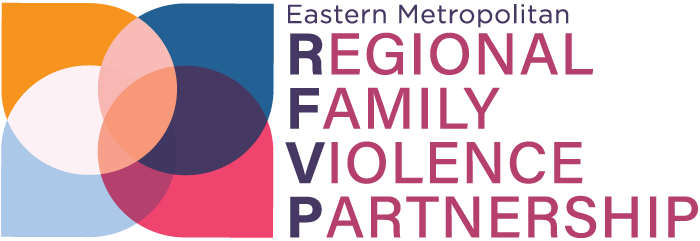All people and communities are free from family violence and have freedom and choice over their lives
The Disability Inclusion and Safety Resource Hub has been developed for organisations and practitioners who are working with people with disability who are experiencing or using family violence.
The Resource Hub provides ready access to important resources that promote safety, accessibility, equity and inclusion of people with disability which can aid in reducing barriers and increasing safety. Resources are relevant to Organisational Leaders, Specialist Family Violence and Sexual Assault Practitioners, Disability Services, Health, Family Support, Education and others.
What are sensory disabilities?
A sensory disability affects one, some or all of a person’s senses; sight, hearing, smell, touch and taste. Spacial awareness, the ability to know where your body is in relation to objects or other people, is often included as a sixth sense. People with a sensory disability may feel sensory input more or less intensely than other people. This impacts their ability to interact with different environments and perform daily activities., especially when those environments are not designed to be accessible or inclusive.
Common sensory disabilities
There is a range of sensory disabilities, which may be standalone or a part of another disability. The most common sensory disabilities include:
Vision impairments
Vision impairments are either categorised into low vision or blindness. Low vision can affect people of all ages and impact on many aspects of a person’s life, including recognising faces, reading the newspaper, using a phone and reading road signs. Meanwhile, a complete loss of vision causes difficulty with mobility, navigation and everyday tasks.
People with low vision or blindness can benefit greatly from support such as magnifiers, correct lighting, screen reading software, a walking cane, a seeing-eye dog and learning to read braille, as well as training and education to help gain or maintain employment and continue to live a full and happy life.
Hearing impairments
Hearing impairments are problems that occur within the hearing pathway. They can cause learning and speech difficulties in young children which can be supported through speech therapy. Hearing impairments can be a total or partial loss of hearing. People with a hearing impairment can get an amplification or assistive listening device. These devices include hearing aids, bone conduction implants, cochlear implants and personal frequency modulation (FM) systems.
Autism spectrum disorder
Autism is a lifelong developmental condition categorised by difficulties in social interaction, communication, sensory processing difficulties and restricted interests and behaviours. People with Autism relate to their environment and other people differently.
Sensory processing disorder
Sensory processing disorder is a neurological condition causing misinterpretation of the world and other people through hearing, vision, taste, smell, touch, pressure and movement.
Source: Disability Support Guide – https://www.disabilitysupportguide.com.au/information/article/sensory-disabilities
About this resource: This FVDPLI resource provides information on useful links for relevant information and resources.
Applying this resource: For organisations practitioners supporting people with disability.
About this resource: Information on how to work effectively with an Auslan Interpreter when communicating with a person who is deaf.
Applying this resource: For practitioners supporting people with disability.
About this resource: A series of accessible videos with Auslan, text and audio created by The Domestic Violence Prevention Centre. They include videos titled:
• What is Domestic and Family Violence
• Children and Domestic Violence
• Leaving a relationship due to violence
• Legal protections
• Safey Planning
• Domestic violence and technology
• Looking after yourself after leaving a violence relationship (coming soo
Applying this resource: Information for people with disability who are wanting understand and increase their safety from Family Violence.
About this resource: Psychology today provides details of Deaf Allied Counsellors.
Applying this resource: For practitioners supporting people with disability.
About this resource: The NDIS Resource outlines what are the disability and evidence requirements are for a person with a hearing impairment to access the NDIS and the National Hearing Services Program.
Applying this resource: For practitioners supporting people with disability.
About this resource: This FVDPLI resource provides information to support practitioners when working with a person who has sight impairment including useful links to other relevant information and resources.
Applying this resource: For practitioners supporting people with disability.
About this resource: Useful links to support people with dual sensory impairments
Applying this resource: For practitioners supporting people with disability.
About this resource: This FVDPLI resource provides information on specialized equipment for people with hearing loss, including useful links to other relevant information and resources.
Applying this resource: For organisations and practitioners supporting people with disability.


All people and communities are free from family violence and have freedom and choice over their lives
![]()
Subscribe today to the RFVP Newsletter by filling out your details below.
Copyright RFVP 2025, All rights reserved
Website designed by 2dog creative
